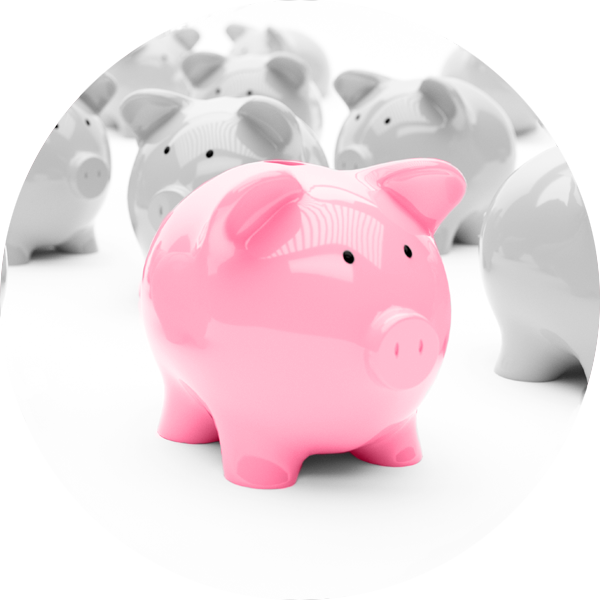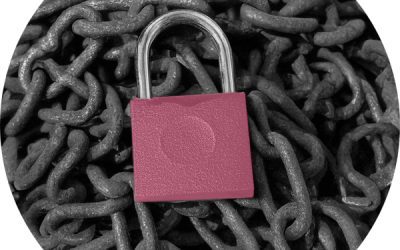Balancing business ethics in a complex world

It’s a front-of-mind topic these days. Partly due to the Covid impact, but also because society wants to see businesses “doing the right thing” in an uncertain world.
It’s not a new thing, though.
Many businesses have been prioritising ethics for decades. Of course, others haven’t.
So, what does it mean to be an ethical business, and is it the right approach to take today? That’s the question we consider in this thought-provoking article.


What do we mean by an “ethical business”?
While everyone might have their own definition, you can broadly define business ethics as follows:
A system of policies and practices that uphold an organisation’s legal and moral responsibilities. In other words, what a business believes is ‘right’ and ‘wrong’ regarding its operations and employee actions.
Examples include prioritising workplace diversity, data protection, operating fairly, and putting customers first. Yet, ethics can go wider than this. They overlap with corporate social responsibility and determine how a business might support societal goals too. Carbon footprint reduction is a prime example today.
Businesses, large and small, are embracing ethical principles. For example, Starbucks is working towards filling 30% of its corporate roles with black, indigenous, and people of colour (BIPOC) by 2025.
Meanwhile, Johnson & Johnson is working to get 100% of its energy needs from renewable sources by 2025. Tall orders from global leaders.
When you boil it down, regardless of turnover, ethical businesses have the following things in common:
- They operate in an honest and transparent way
- They’re fair with employees, customers, suppliers, and the community
- They prioritise wellbeing and customer satisfaction
- They acknowledge their responsibility to society
- They adhere to the letter and the spirit of the law
- They hold themselves accountable
- They consider the long-term impact of their actions
Different groups of people look at business ethics with differing lenses. It can be complicated.
Employees want to focus on workplace ethics, whereas customers tend to prioritise product ethics such as environmental impact and pricing. Meanwhile shareholders want ethical financing and transparent reporting.
You can see why it’s hard to precisely define an ethical business that pleases everyone. Cross-stakeholder communication is crucial.
The benefits of being ethical.
For many, taking an ethical approach to business isn’t only “the right thing to do”, it can be commercially beneficial too.
When a business behaves ethically, prospective customers are more likely to trust them. And we all know trust is currency. A 2017 survey by Unilever found a third of consumers (33%) buy from brands they believe are doing social or environmental good. It’s easy to believe that figure has risen today.
Strong ethics shape clothing brand, Patagonia. Encouraging consumers to “buy less”, this unconventional approach bolstered their reputation as an environmentally conscious company.
Lush, meanwhile, gives customers a free cosmetic pot when they return five empty containers. This high street retailer actively prioritises recycling.
So, being ethical can attract and retain customers. It can also help to attract talent. People want to work for a business that’s behaving ethically. And this is a huge factor for Generation Z.
Investors want to see their money used responsibly. So, they look to see how ethical a business is before deciding whether to support them. They choose their partners carefully.
Ethical businesses are in it for the long haul. They’re prepared to make short-term compromises for the greater good of people and the society they serve. For many, this approach is commercially successful too.
So, it does seem like an obvious step. And for many, it is. But ethical practices can present challenges.


The challenges of behaving ethically.
The big one is cost. Ethical practices can hamper your profit margin. Sourcing materials ethically, paying fair wages, giving back to society – it all comes at a cost.
Many activities demand precious time too. Like establishing an ethical supply chain. Whilst a worthwhile activity, that’s time you could be spending on building your business.
And when your competitors aren’t on the same page, you can be at an instant short-term disadvantage. After all, price continues to be a key consideration, however ethical you are.
Prospective customers can be sceptical too. Are you really doing all you say? Or are you using important issues to gain a foothold and misplaced trust? Some businesses don’t practice what they preach, so it’s easy to understand where this scepticism comes from.
And should they get found out, they risk their reputation. When you put yourself on a pedestal, people are not impressed when you don’t measure up.
Common ethical dilemmas.
When you’re trying to act ethically, there are challenges around every corner. Here are five familiar examples.
#1 Environmental impact or profit
It can seem like these two things are at loggerheads. How can a manufacturer invest in eco-friendly practices without hiking production costs (and the product price)?
#2 Nurturing employees
During hard times, you could cut costs by reducing employee benefits. But this could impact their wellbeing, and in turn, their attitude to the workplace.
#3 Data privacy
Do you monetise data when you don’t have clear consent, or do you prioritise privacy? The decision clearly impacts your revenue.
#4 Acting transparently
Do you hide negative information from customers and investors, fearing repercussions? But what if you promised to behave transparently? Your reputation could be at risk if you don’t disclose the information.
#5 Honest financial reporting
It’s easy to put a positive spin on your financial performance so it looks better. Doing so would attract more investment and maintain share prices. But are these short-term gains worth the deliberate inaccuracy?


Why ‘legal’ and ‘ethical’ are not the same.
As part of our discussion, it’s important to distinguish between law and ethics, because the two are not the same. You can operate legally and still be unethical.
The law sets mandatory boundaries. You must meet these and demonstrate compliance. Otherwise, you risk fines or other penalties. Contracts, intellectual property, and employment practices all have legal requirements.
Ethics, on the other hand, go beyond legal requirements. They’re voluntary principles a business agrees to adhere to. Deciding to be an honest and fair business is a principle, not a legal requirement.
What about legal loopholes? For example, global organisations can exploit legal reporting loopholes to reduce their tax liability. But is it ethical to contribute less than you should towards government activities?
Another example: you comply with minimum regulations to protect the environment, but you still generate excessive waste and harm the planet. Is that ethical?
Legal and ethical are not the same. But there are times when businesses can be legally unethical. And once discovered, that hampers their integrity and trust with all concerned.
How to establish your own approach to ethics .
Every business must decide where they stand ethically. They must be clear on what matters to them and how they want to be seen. Given the commercial challenges and global uncertainty we all face it can be complicated.
So, here’s our take on steps to help you define your ethical stance and put it into practice.
What matters most to your business? Reflect on your core values and beliefs. Discuss this with all stakeholders too and understand what matters to them.
Get clear on laws and regulations that affect your business. And look at what competitors are up to. Sometimes, an ethical stance can become an opportunity too.
Today’s ethical businesses are working to reduce their impact on the environment. Any ethical policy must align with your environmental, social and governance (ESG) strategy.
It’s useful to have someone (or a team) responsible for overseeing the progress of your ethics goals. They stay current then, even when everyone’s too busy.
Educate employees about your ethical code. Ensure customers and suppliers understand too. Your practices and goals should be public knowledge.
Business ethics are never static. Know how you’re measuring your performance and evolve your goals as required.
In a complex world, many businesses are trying to balance their ethics and performance. People want responsible organisations that make courageous choices for the greater good. Customers, suppliers, employees, and investors are more likely to trust these ethical businesses. And that trust breeds loyalty and brand champions.
Ethical businesses also contribute to a healthier community and environment. Something we all want to see. Society (rightly) believes that organisations have a responsibility to step up and do the right thing.
Perhaps now is a good time to reflect on your own business ethics (and those of the organisation you work in). Could you make any changes for the greater good?
At Redox, we’ve done just this. Our core values are collaboration, accountability, partnership, and integrity. They’re not just words, though. They guide every project and every relationship we nurture.
Respecting everyone’s opinion, we treat our clients’ needs as our own. Plus, transparency and honesty shape everything we do. Learning and growth is a huge priority at Redox – for ourselves and our clients. We want everyone to be the best version of themselves.
To understand more about the culture and values driving Redox, and how they shape our custom software projects, please visit our Culture page.

Recent Posts
- The real cost of offshoring: Why UK companies are bringing software development back home
- Of heartstrings and algorithms: Music in the age of AI
- The heart-in-a-bucket problem: Why AI fails in organisations
- From a nudge to a sledgehammer: How AI’s gloves are off
- The hidden costs of poor UX: Why software interfaces matter more than you think


